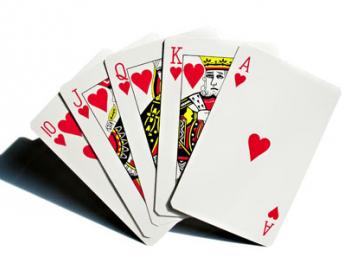
The first in our series, “Unbelievable: Addressing obstacles to faith”

The first in our series, “Unbelievable: Addressing obstacles to faith”

I believe many who would identify themselves as non-Christians have not rejected Jesus at all. They’ve rejected someone I’m calling “Geezus” – the parody of Christ co-authored by misguided church people and cynics. Open to Matthew and start reading.
Everyone offers it. Few understand it. Many think they have it but know they do not. They talk of freedom but they are “free dumb.” Simply put, freedom is doing what you most want to do. Everything else is a degree of slavery. So, if I ask you, “What do you most want to do?” and you answer with anything other than what you are currently doing, then you are bound in some way. If you believe yourself to be free, then you are free dumb.
I have found that Jesus Christ alone offers true freedom. He has liberated me from regret, fear, and insecurity. He has pulled me into his loving embrace and I want nothing more. I want him like Paul did in Phil. 3:10-11. He is my great treasure and my aspiration. I have found limitless wonder, joy, and power as a willing subject in his perfect law-less reign. Sadly, those who reject him often do so because they believe he wants to hamper their “freedom.” They are free dumb.
Perhaps those who reject him think this way because of “believers” who are afraid to declare with Paul, “All things are lawful for me.” Such adherents speak judgment and rules as they drag the chains of their misguided responsibilities. All the while they are mute to the truth that sets us free. They are free dumb.
The Bible warns against unbelief but not against atheism per se. How could the writers of the Scriptures have warned against atheism? There weren’t any atheists. I’ve heard commentators on a local Christian radio station aim Psalm 14:1 (“The fool says in his heart, ‘There is no God.’”) at atheists. Of course the implication becomes, “Atheists are fools.” However, should you have met the 10th century B.C.E. Jewish citizen to which the psalmist referred, he would have confessed to a belief in the existence of God. The psalmist was not saying that avowed atheists are fools. He was saying that fools secretly (in their hearts) suppress their awareness of God.
So who are the fools? The rest of Psalm 14 describes these religious unbelievers as those who elevate themselves by pushing others down. Such people by their actions deny God as their source. They may claim to believe that God exists, but they do not trust him to supply them with security, sustenance or self-worth. They maneuver and manipulate to get for themselves what others have or might acquire. Such people pray and attend religious services but they do not expect God to respond to their petitions. Instead, they engage in these activities to further establish their superiority.
As a case in point, consider Jesus’ very telling question addressed to the religious elite of his day, “How can you believe since you accept glory from one another but do not seek the glory that comes from the only God?” (John 5:44 NIV) These men who stood at the peak of the religious establishment of their day were unbelievers according to Jesus. From their lofty perch they congratulated each other on their moral superiority and derided everyone else. They traded genuine engagement with the Basis of their being for the illusion of relative worth. Rather than find the favor of God, they fed on the “failures” of those whom they defamed. “They devour my people as though eating bread; they never call on the LORD.” (Ps. 14:4b NIV)
Faith, real faith, is a foreign concept. People will seek any alternative to humble reliance on God. Each alternative counterfeits the genuine treasure of our existence. The most dangerous counterfeits most closely resemble the genuine article. Those who accept religious achievement as heavenly currency are among the most desperately deceived. Beware religious unbelief.
 “Something’s wrong with me?”, Jamie, my wife, said over the phone. “I can’t straighten my legs. What am I going to do?”
“Something’s wrong with me?”, Jamie, my wife, said over the phone. “I can’t straighten my legs. What am I going to do?”
What was she going to do? What was I going to do? I was out on my route. I couldn’t leave. I felt helpless. She was at home taking care of our two young children and she could barely walk. Besides, I could hear the fear in her voice. I worked extra hard to get home as quickly as possible.
When I got there, my concern turned to alarm. Both of her legs were bent at a 75 degree angle. She could neither sit nor stand comfortably. I’ll never forget the sight of her hobbling up the five stairs ascending from our den into our kitchen. As she ascended those stairs, I descended into despair. “What could this be? Some degenerative disease? Why would it come on so suddenly?” All of these questions raced through my mind. I considered taking her to the doctor, but I had absolutely no faith that they would be able to help with such a strange problem.
We had plans that evening to eat at the home of our close friends and fellow believers, so I gingerly loaded her into the van and away we went. After dinner, I related to my friend that I had been reading a book by Smith Wigglesworth on divine healing and I suggested that he and his wife join me in praying for Jamie. We put her on the couch and I prayed like I had never prayed before. Instead of asking that she would be comforted in this difficult time or that the doctors would discover the cause of the problem or even asking if God might be willing to heal her, I said, “We speak to these knees and in Jesus name we command them to be healed.” When she stood up, she announced, “I’m better!” The next day my family went for a hike at a local state park. She’s not had any trouble in the eleven years since that evening.
That day I got to peer behind the veil of the material world to see what’s going on when we pray. We’re involved in a high stakes poker game with the “father of lies.” Jesus has told us that we have a winning hand, but as we look across the table at those mirrored glasses and that look of derision, our nerves can get rattled. We push a few chips to the middle of the table – a five minute request qualified by lots of “if it be thy will.”
Satan responds, “It will take more than that if you want to see my cards.”
Our palms begin to sweat. We wonder, “What if I stake all my faith on this hand and I’m beaten? What will happen to all that I claim to believe? What will happen to the faith of other people if they observe God’s promises fail? Do I dare to stand? Wouldn’t it just be safer to fold and cut my losses?” So, we fold. We walk away from the table with slightly less faith than we came with but at least we didn’t risk it all. Meanwhile Satan sits at the table with a smug smile, holding a pair of deuces.
To all of us who too often fold in prayer, I commend the words of the apostle Paul, “Finally, be strong in the Lord, and in the strength of his might. Put on the whole armor of God, that ye may be able to stand against the wiles of the devil.” (Eph. 6:10-11 ASV)